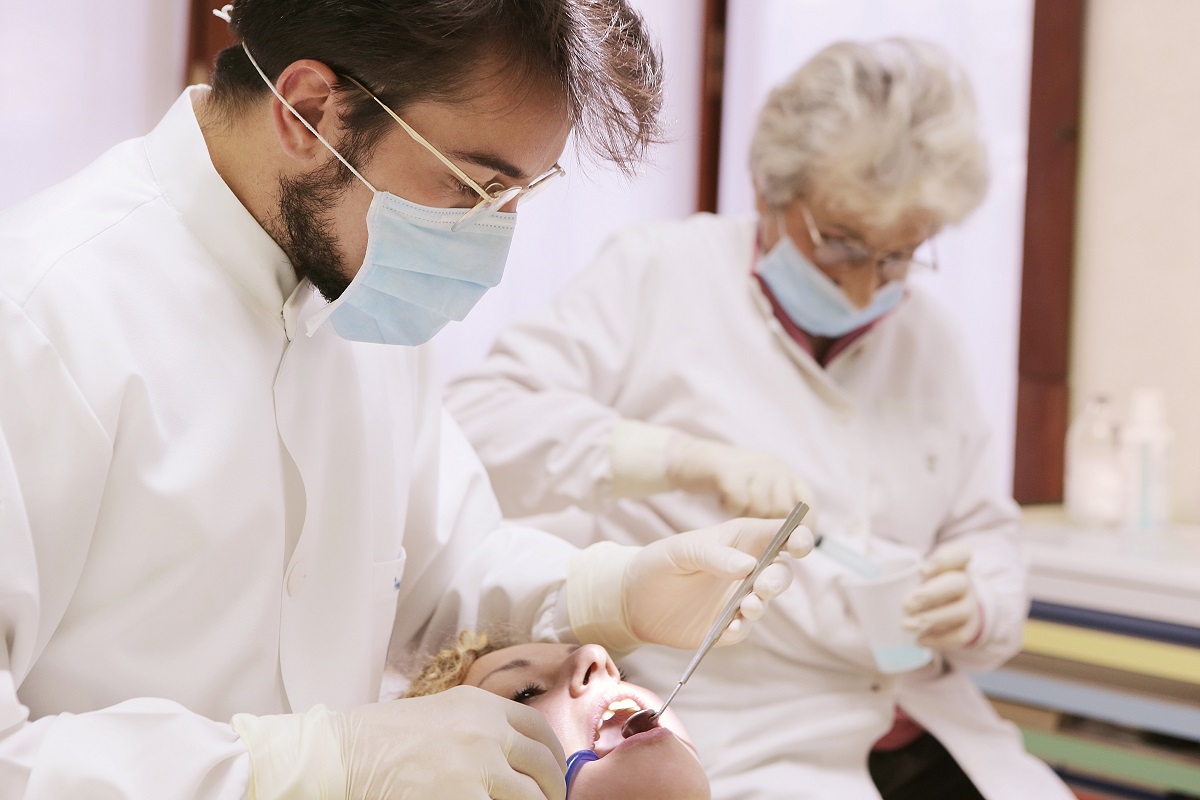If there’s one thing that can be said about our journey toward parenthood, we want to do everything in our power to ensure a healthy pregnancy and birth. But what if this process could start before conception?
Ayurvedic preconception care is an ancient system of wisdom that focuses on preparing the body and mind for a healthy pregnancy. This holistic approach to preconception health has been used for centuries in India yet remains little known today.
It’s time to bring this treasure trove of knowledge into the spotlight and use its amazing potential! Ready to learn more about this ancient practice? In this article, I’ll guide you through the basics of Ayurvedic preconception care so you can optimize your fertility and well-being.
Conception, according to Ayurveda
Preconception care is a crucial step in preparing for a healthy pregnancy, and Ayurveda’s unique approach has been employed for centuries.
At the heart of Ayurvedic preconception care is balancing your body and mind using diet and lifestyle practices to create inner harmony. Following an Ayurvedic regimen can help balance the doshas—reducing stress, regulating hormones, improving digestive health, and boosting overall well-being.
Beyond regular diet and exercise, Ayurveda offers additional tips for optimal preconception health. Practicing mindful activities such as yoga, breathwork, or meditation can help bring you to the mental state of openness required for conception.
Herbal supplements such as Ashwagandha can nourish the reproductive system and enhance fertility. It’s even thought that certain therapies like Abhyanga massage may help reduce stress levels by encouraging greater circulation in the uterus, thus aiding conception.
By preparing your body and mind in advance with ayurvedic preconception care, you can achieve optimal health and well-being before entering motherhood.
The couple should first undergo Shodhana (purification) therapy, starting with Purvakarma (preparatory measures), Snehana (oleation), Swedana, then Vamana, Virechana (purgation), Asthapana (decoction enema), and Anuvasana basti (oil enema).
The male should consume Shali rice with Ghrita (ghee) and milk. Taila and masha should be consumed by the female.
Appropriate age for conception
Age plays a significant role in achieving good progeny because biologically, a person (wife or husband) can produce a healthy child only after attaining sexual maturity. The appropriate age for females is before 25 years, and for males, it is between 22 and 25. As both partners are full of courage and vigor at this age, the born child also possesses these qualities. Ayurvedic Treatment in Kerala gives you a natural preconception care for you.
Best time for conception, according to Ayurveda
You’re most fertile at ovulation (when an egg is released from your ovaries), which usually occurs 12 to 14 days before your next period starts. However, this varies from person to person.
Factors affecting conception
Various factors play a role in achieving proper conception. Ayurveda mentions the significance of four factors required for conception, which are as follows:
- Ritu (Time of ovulation, when the chances of conception are maximum)
- Kshetra (the reproductive tract where fertilization and implantation occur)
- Ambu (nourishment including all the hormones)
- Beeja (healthy sperm and ovum)
Precautionary care during preconception
When it comes to having a healthy pregnancy, preconception care shouldn’t just be about the female partner. According to Ayurvedic principles, both partners should ensure they are in the best physical and mental shape before conception.
That means it’s important for both partners to take precautionary steps for preconception:
Male Preconception
The male partner should focus on improving his immunity. Eating a balanced diet with plenty of fresh fruits and vegetables can help strengthen his immune system and prepare it for conception. He should also practice stress-reducing activities like yoga or meditation and get enough rest to optimize hormone production.
According to Ayurveda, he is advised to take more red rice with ghee and milk.
He should also consider reducing his use of alcohol and drugs and avoiding smoking completely to lessen any potential toxic effects that could be passed on genetically during conception.
Female Preconception
The female partner should take time before conception to build her immune system through diet, exercise, and relaxation techniques. She can also schedule regular checkups with her doctor to ensure she is in the best physical condition before becoming pregnant.
She is advised to take a black gram and sesame oil as it will enhance the quality of the ovum and thus ensures a good progeny.
Additionally, she needs to get tested for STIs (sexually-transmitted infections) and other infectious illnesses that may affect her baby’s health if not treated beforehand. Regular blood tests can help detect potentially dangerous conditions in advance, allowing them to be addressed before conceiving a child together.
Role of diet
Now that you know the importance of preconception care in Ayurveda, let’s dig into how you can use diet to maintain a healthy reproductive system.
Ayurveda recommends certain dietary practices known as ahara to keep your doshas balanced and your reproductive system functioning properly. The best part is this kind of diet is all-natural and full of nourishing food sources. Here are some helpful tips to get started:
Eating habits
Eating freshly cooked food and avoiding cold or stale food is important since cold food will interfere with digestion. Also, try not to eat too late in the evening — it’s best to stop eating at least 3 hours before bedtime for optimal digestion.
Eating for balance
If you’re trying to balance your doshas with diet, here’s what you should focus on:
Vata-dominant people should eat primarily sweet, sour, and salty foods that are warm and cooked.
Pitta-dominant people should incorporate more bitter and sweet foods into their diet and avoid spicy or fried stuff.
Kapha-dominant people should favor bitter, astringent, and pungent flavors while avoiding sweet foods.
Green vegetables, cereals, fruits, milk, ghee, and dates are good for better preconception care.
Black gram, included in the Preconception diet, is a rich source of folic acid, proteins, and fibers. Thus it helps to prevent neural tube defects. As it is a potent antioxidant, it helps to reduce oxidative stress.
Rice contains more carbohydrates, and rice bran contains vitamin B complex, which is easily digestible.
Milk provides calcium. Ghee has the properties of imparting strength, improving tonicity, and nourishing the body.
By following these guidelines, you can maintain a proper balance between your doshas — creating an ideal environment for conception!
Lifestyle changes: Do’s and Dont’s
You may be wondering what you should and shouldn’t do regarding preconception care in Ayurveda. Luckily, Ayurveda has some simple Dos and Don’ts that can help you practice a healthier lifestyle before and during conception.
Do’s
- Regular exercises, like yoga or pranayama
- Eating seasonal and local produce
- A balanced diet with little to no processed foods
- Drinking plenty of water throughout the day
- Going out in nature, meditating, and taking time for yourself
Don’ts
- Overeating or undereating
- Eating unhealthy foods such as processed sugars or canned food
- Lack of physical activity (you should ideally get at least 30 minutes of exercise each day)
- Stressful situations or stressful activities like overworking yourself – Taking any medications without your doctor’s approval
- Hot spices, processed food, coffee /tea, cold drinks, alcohol, paan, chocolate, fast food
- Smoking and Tobacco chewing
- Sleeping during day time
- Staying awake at night
- Heavy exercise
- Over-exposure to X-rays and sun.
- Overuse of computers and mobile
- Tight & synthetic undergarments
- Stress, anxiety
Following these guidelines increases your chances of having a healthy pregnancy and helps maintain good physical and mental well-being. Ayurvedic hospitals in kerala are mainly offers treatment for preconception, prenatal care and post delivery care
Conclusion
Ayurvedic pre-conceptional care is an ancient practice tailored to the needs of the individual, taking into account the person’s body, mind, and spirit. It considers the whole person – body, mind, and spirit – and provides a holistic approach to the preparation for pregnancy.
Ayurvedic preconception care can help reduce the risk of pregnancy complications linked to poor nutrition and lifestyle habits. It also helps to ensure a healthy environment for the baby. Ultimately, the goal is to ensure that the mother-to-be is in optimal health before, during, and after pregnancy.
With the right guidance and support, ayurvedic preconception care can be an invaluable tool to help you prepare for a healthy pregnancy. By opening your mind to the ancient wisdom of Ayurveda, you can take a step in the right direction to create the best possible environment for your baby.















